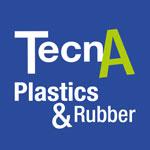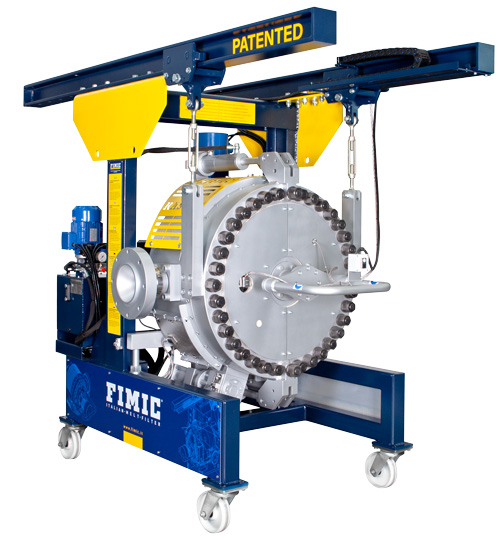 FIMIC’s CEO, Erica Canaia, shares knowledge on LinkedIn to raise awareness about plastic recycling and demonstrate what is fake and what is true about what is told in social media
FIMIC’s CEO, Erica Canaia, shares knowledge on LinkedIn to raise awareness about plastic recycling and demonstrate what is fake and what is true about what is told in social media
Plastic is everywhere we look, from packaging to clothing to medical equipment. Its versatility and durability have revolutionized our lives, but its growing presence also raises concerns about environmental pollution.
The main arguments against plastics are based on the detrimental effects it has on the environment, human health, and wildlife. These arguments highlight the urgency of addressing plastic pollution. By promoting responsible plastic use, developing sustainable alternatives, and investing in better waste management systems, we can work towards a cleaner and healthier planet for all.
Recycling is often presented as the answer, but its effectiveness hinges on one crucial factor: awareness. The importance of it lies in the power to increase participation of the community, when people understand the benefits and process of recycling, they’re more likely to participate actively.
Clearer sorting at home reduces contamination, a major issue that can ruin entire batches of recyclables. Through accurate information it is also possible to reduce contamination from non-recyclable materials like food scraps or hazardous waste that can significantly impact recycling efforts. Education campaigns can help people identify what goes where, ensuring cleaner recycling streams and higher-quality recycled materials.
Innovation in recycling
Fimic, a manufacturer of plastic filtration systems, plays a crucial role in this process. With its innovative technologies, Fimic not only optimises plastic recycling, but also promotes greater awareness of the importance of proper disposal. Thanks to advanced solutions and constant research in the field of sustainability, Fimic contributes to more informed consumers, capable of recognising and choosing products made of recycled materials.
Consumers with a deeper understanding of plastics and recycling can make informed choices. They can look for products made with recycled content, putting pressure on manufacturers to use sustainable materials. Shifting behaviour is a critical point, awareness campaigns can promote a cultural shift towards responsible consumption and waste reduction. People might be more inclined to use reusable alternatives and avoid single-use plastics altogether, reducing the burden on recycling systems in the long run.
Strategies to increase awareness
We know that plastics recycling awareness empowers individuals to become active participants in the solution. And some ways to raise awareness are creating educational campaigns with clear and accessible information campaigns can be disseminated through schools, community events, and social media. Standardized labeling with universal labeling systems on plastic products can simplify sorting and reduce confusion for consumers. Of course, manufacturers can play a more significant role in educating consumers through packaging labels and by promoting responsible disposal practices.
Awareness starts at home, this is why FIMIC’s CEO, Erica Canaia, has been sharing knowledge with the people on LinkedIn to raise awareness about plastic recycling and to demonstrate what is fake and what is true about what is been told in social media. Educate and tell the truth about plastic, it’s not an evil destructive material as it has been demonized, that’s the main goal that led Erica to win the award Plastic Recycling Ambassador during the last edition of The Plastics Recycling Show Europe in Amsterdam.
Plastics recycling is a complex issue, but it’s a crucial component of a sustainable future for plastics. By fostering public awareness, we can unlock the full potential of recycling and empower individuals to make a collective difference. Together, informed consumers, responsible manufacturers, and effective recycling systems can create a more circular economy for plastics, minimizing waste and environmental impact.
قوة المعرفة: لماذا تبرز أهمية رفع مستوى الوعي فيما يتعلق بإعادة تدوير البلاستيك
تشارك إيريكا كانيا، الرئيسة التنفيذية لشركة FIMIC، المعرفة على موقع LinkedIn وذلك لغاية زيادة الوعي بشأن إعادة تدوير البلاستيك وتوضيح ما هو خاطئ وما هو صحيح بخصوص ما يتم نشره على مواقع وسائل التواصل الاجتماعي
يتواجد البلاستيك في العديد من المجالات، ابتداءً من التغليف وإلى الملابس وحتى المعدات الطبية. لقد أدى تعدد استخدام البلاستيك وطوال أمده إلى تغيير حياتنا، ولكن انتشاره المتزايد يثير المخاوف في نطاق التلوث البيئي.
علماً بأن المواضيع الرئيسية المثارة ضد البلاستيك تتعلق بآثاره السلبية على البيئة، صحة الإنسان والحياة البرية، وبذلك يتم تسليط الضوء على الحاجة الملحة لمعالجة التلوث البلاستيكي. فمن خلال تعزيز الاستخدام المسؤول وتطوير البدائل المستدامة والاستثمار في أنظمة إدارة النفايات، سيكون باستطاعتنا العمل لغاية الحصول على كوكب أنظف وأكثر صحة.
غالباً ما يتم اعتبار عملية إعادة التدوير حل، ولكن تعتمد فعالية هذا الحل على عامل رئيسي واحد: الوعي. إن فهم فوائد وعملية إعادة التدوير يزيد من مشاركة المجتمع فيه تطبيقه: قد تؤدي عملية الفرز بطريقة أوضح للنفايات والمواد في المنزل إلى تقليل التلوث، فهي تمثل المشكلة التي تؤثر سلبياً على عملية إعادة التدوير. وقد تساعد المعلومات الدقيقة على تجنب التلوث بالمواد غير القابلة لإعادة التدوير، مما يحسن من جودة المواد المعاد تدويرها. باستطاعة الحملات التثقيفية إرشاد المواطنين للتمكن من التعرّف على ما يجب إعادة تدويره، وذلك لضمان تدفقات أنظف للنفايات.
الابتكار في إعادة التدوير
شركة Fimic هي شركة تعمل على صناعة أنظمة ترشيح البلاستيك، وهي تلعب دوراً حاسماً في هذه العملية. عبر تقنياتها المبتكرة، فبالإضافة إلى قيام شركة Fimic على تحسين إعادة تدوير البلاستيك، فهي تعمل أيضاً على تعزيز الوعي بأهمية التخلص السليم من البلاستيك. وبفضل الحلول المتقدمة والأبحاث المستمرة في مجال الاستدامة، تساهم شركة Fimic على تثقيف مستهلكين أكثر دراية وقدرة على اختيار والتعرّف على المنتجات المصنوعة من المواد القابلة لإعادة التدوير.
باستطاعة المستهلكين الذين تم توعيتهم جيداً اتخاذ قرارات مستنيرة من خلال البحث عن المنتجات المصنوعة من مواد قابلة لإعادة التدوير وحث المصنعين على استخدام المواد المستدامة.
تغيير السلوك يعتبر نقطة ذات أهمية، وباستطاعة لملات التوعية تعزير التغيير الثقافي وتوجبه نحو الاستهلاك المسؤول والحد من النفايات. قد يكون وا الافراد أكثر ميلاً لاستخدام البدائل القابلة لإعادة الاستخدام وتجنب المواد البلاستيكية ذات الاستخدام الواحد، وبذلك خفض العبء على أنظمة إعادة التدوير على المدى الطويل..
استراتيجيات لزيادة الوعي
زيادة الوعي فيما يتعلق بإعادة التدوير يسمح للجميع بأن يصبحوا جزء فعّال من الحل. تشمل استراتيجيات زيادة الوعي على الحملات التثقيفية التي يتم نشرها عن طريق المدارس والمناسبات والاحداث المجتمعية ووسائل التواصل الاجتماعي. وضع العلامات الموحدة على المنتجات البلاستيكية قد يساعد على تبسيط يمكن أن يؤدي وضع العلامات الموحدة على المنتجات البلاستيكية إلى تبسيط عملية الفرز وتقليل التباس المستهلكين. وبالطبع، يمكن أن تلعب الجهات المنتجة دور أكبر في تثقيف المستهلكين من خلال ملصقات المعلومات وممارسات التخلص من النفايات المسؤولة.
تعتبر عملية إعادة تدوير البلاستيك أمر معقد ولكنها ضرورية للحصول على مستقبل مستدام. من خلال تعزيز الوعي، يمكننا إطلاق العنان لإمكانات إعادة التدوير وإعطاء الجميع فرصة لإحداث فرق. سوياً مع المستهلكين المستنيرين والمنتجين المسؤولين وأنظمة إعادة التدوير الفعّالة مثل FIMIC، من المستطاع بناء اقتصاد دائري للبلاستيك، وبذلك خفض النفايات والأثر البيئي.
تبدأ التوعية من المنزل، وهذا هو السبب الذي دفع إيريكا كانايا، المديرة التنفيذية لشركة FIMIC، إلى مشاركة المعرفة مع الاشخاص على موقع LinkedIn وذلك لغاية زيادة الوعي بشأن إعادة تدوير البلاستيك وتوضيح ما هو خاطئ وما هو صحيح بخصوص ما يتم نشره على مواقع وسائل التواصل الاجتماعي. التثقيف وقول الحقيقة فيما يتعلق بالبلاستيك، والذي لا يعتبر مادة فظيعة ومدمرة كما تم تشويه صورته: وهذا هو الهدف الرئيسي الذي جعل إيريكا تفوز بجائزة سفير إعادة تدوير البلاستيك خلال الدورة الأخيرة من معرض إعادة تدوير البلاستيك في أوروبا القائم في أمستردام.
تعتبر عملية إعادة تدوير البلاستيك قضية معقدة، ولكنها تمثل العنصر الحاسم للحصول على مستقبل مستدام للبلاستيك. فمن خلال تعزيز الوعي العام، يمكننا إطلاق العنان للإمكانيات الكاملة لإعادة التدوير وتمكين الأفراد من إحداث فرق على المستوى الجماعي. وسوياً مع المستهلكين المستنيرين والجهات الصانعة المسؤولين وأنظمة إعادة التدوير الفعّالة مثل FIMIC،من المستطاع خلق اقتصاد أكثر دائري للبلاستيك، وبذلك خفض النفايات والأثر البيئي.







